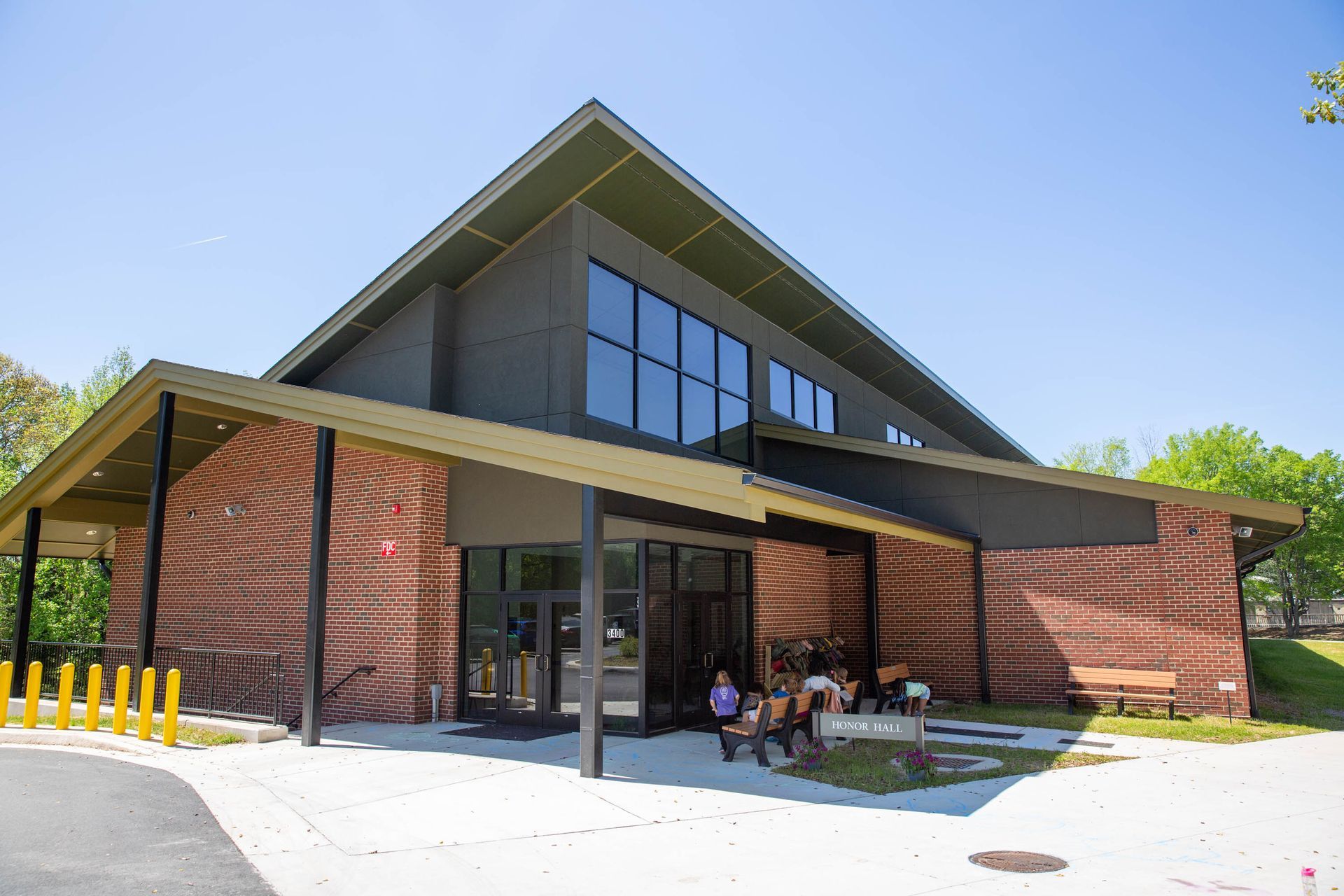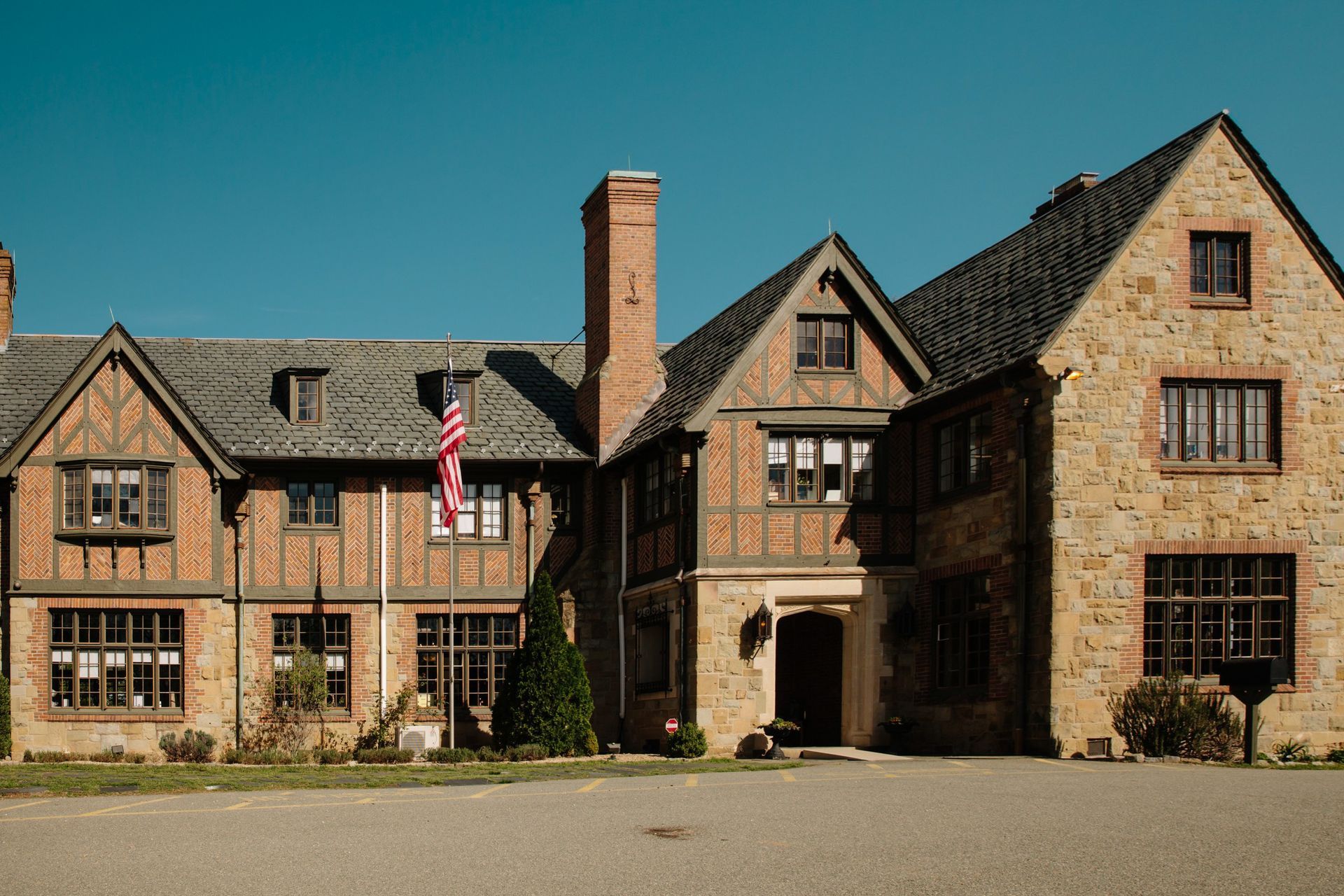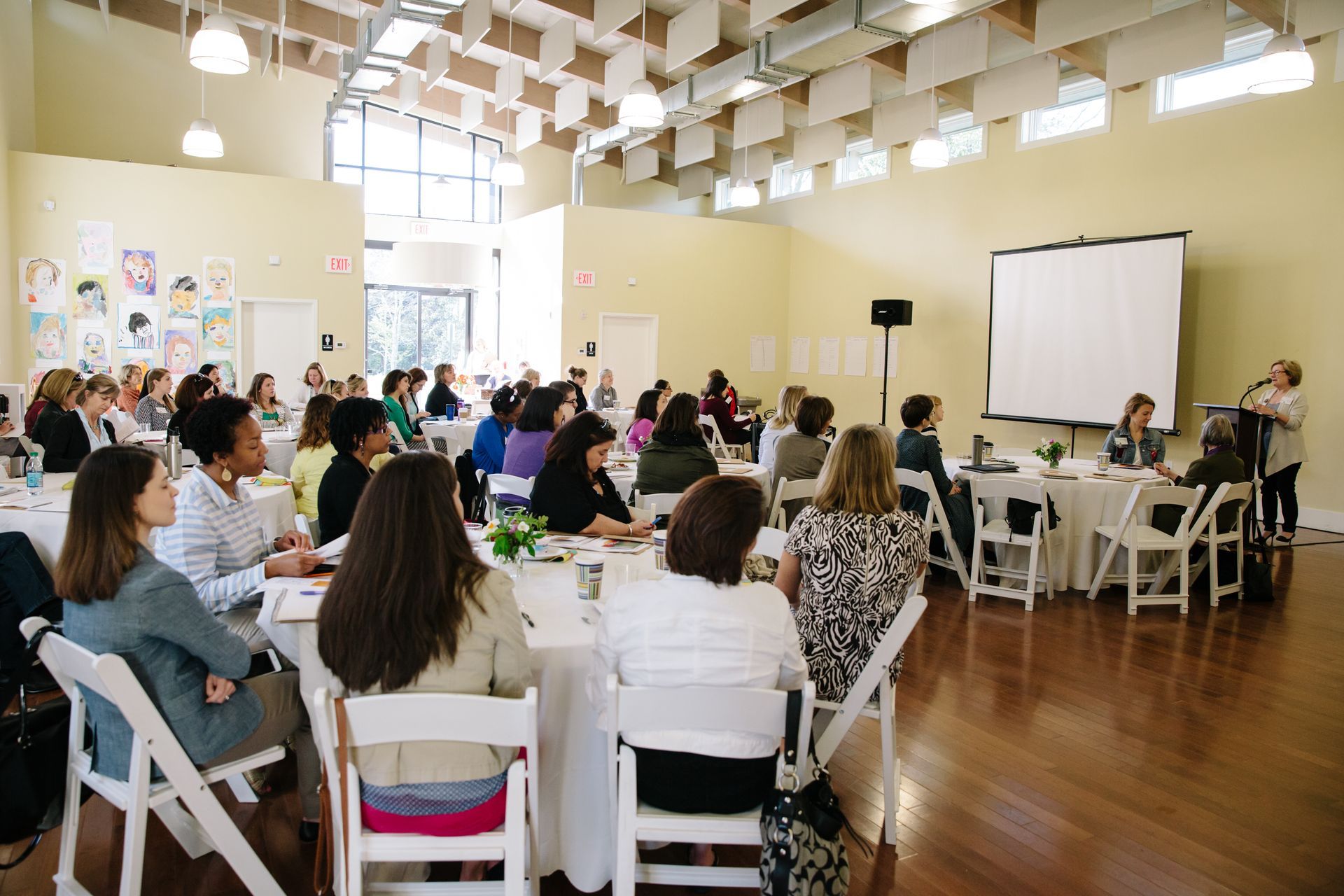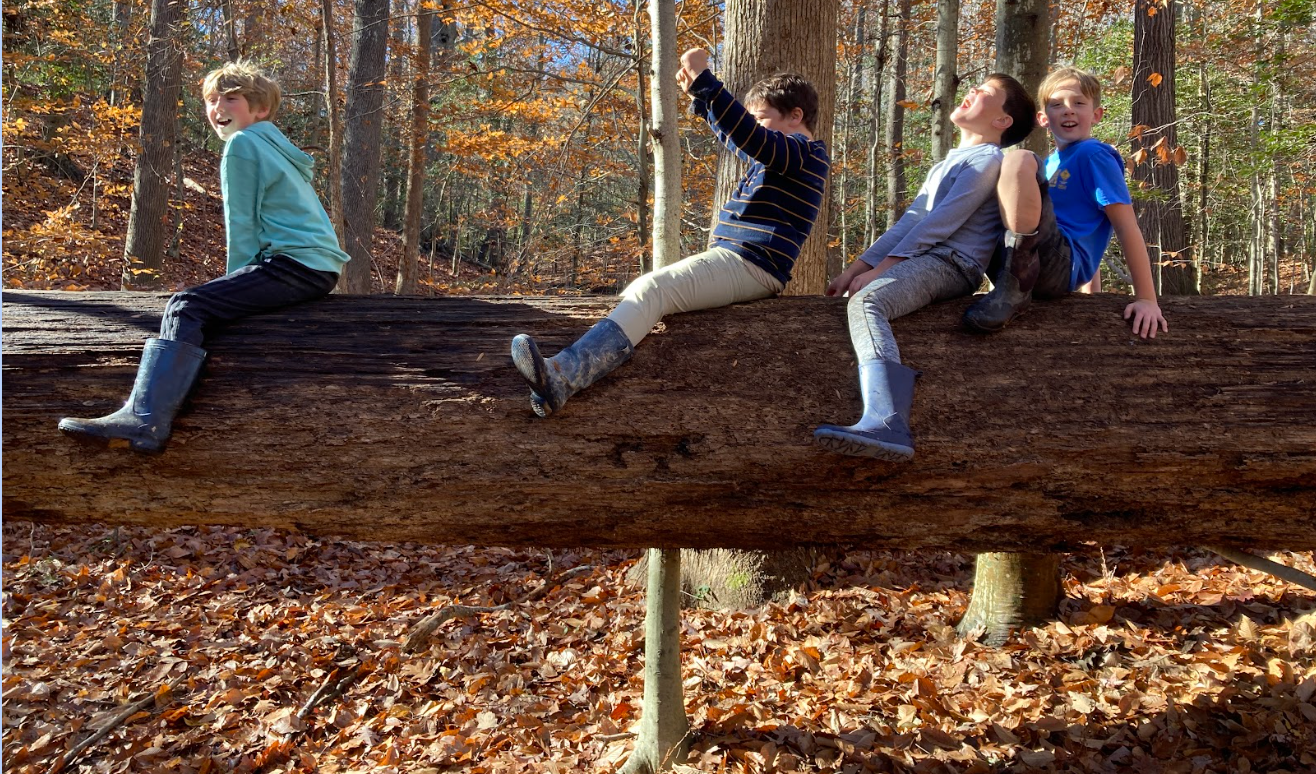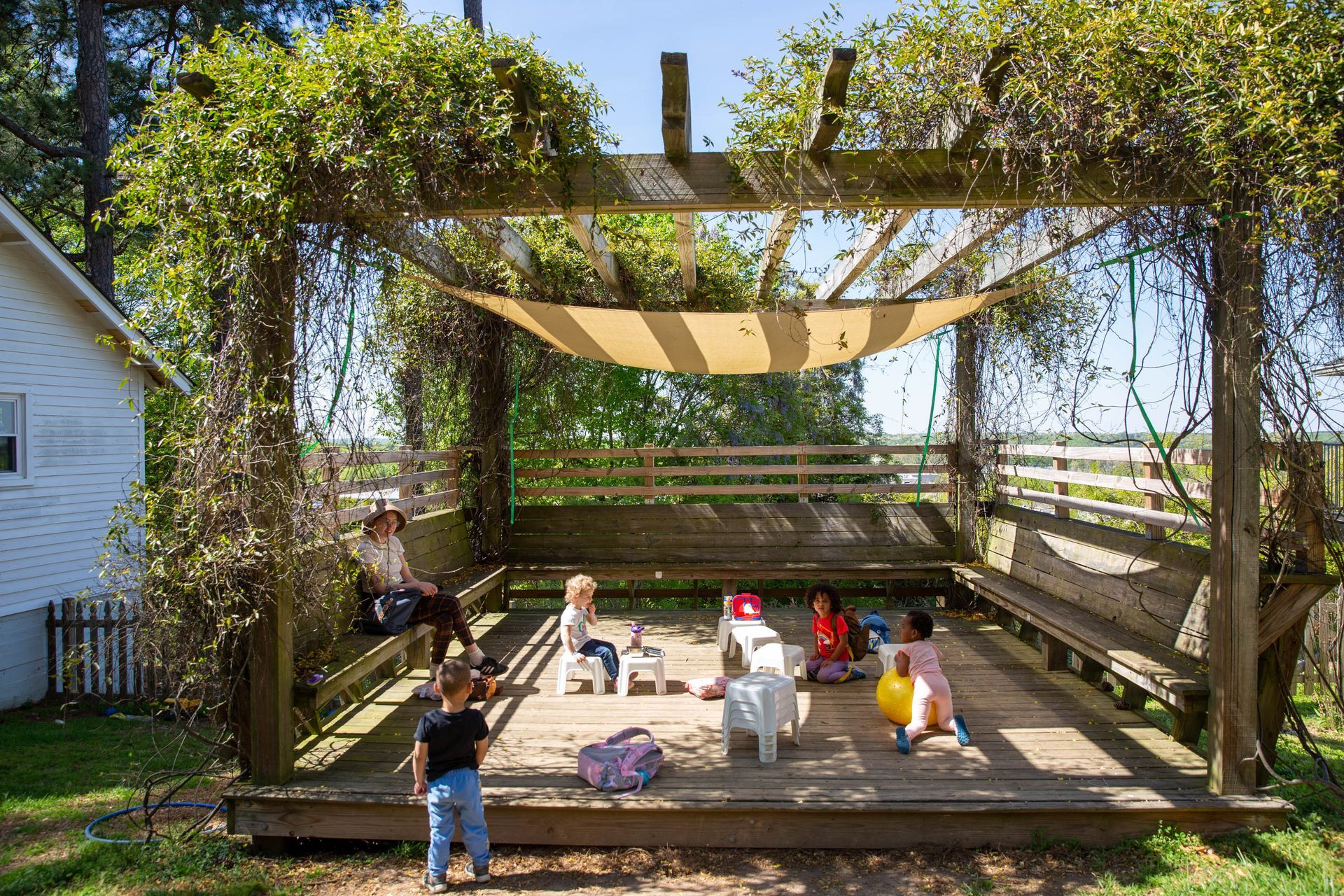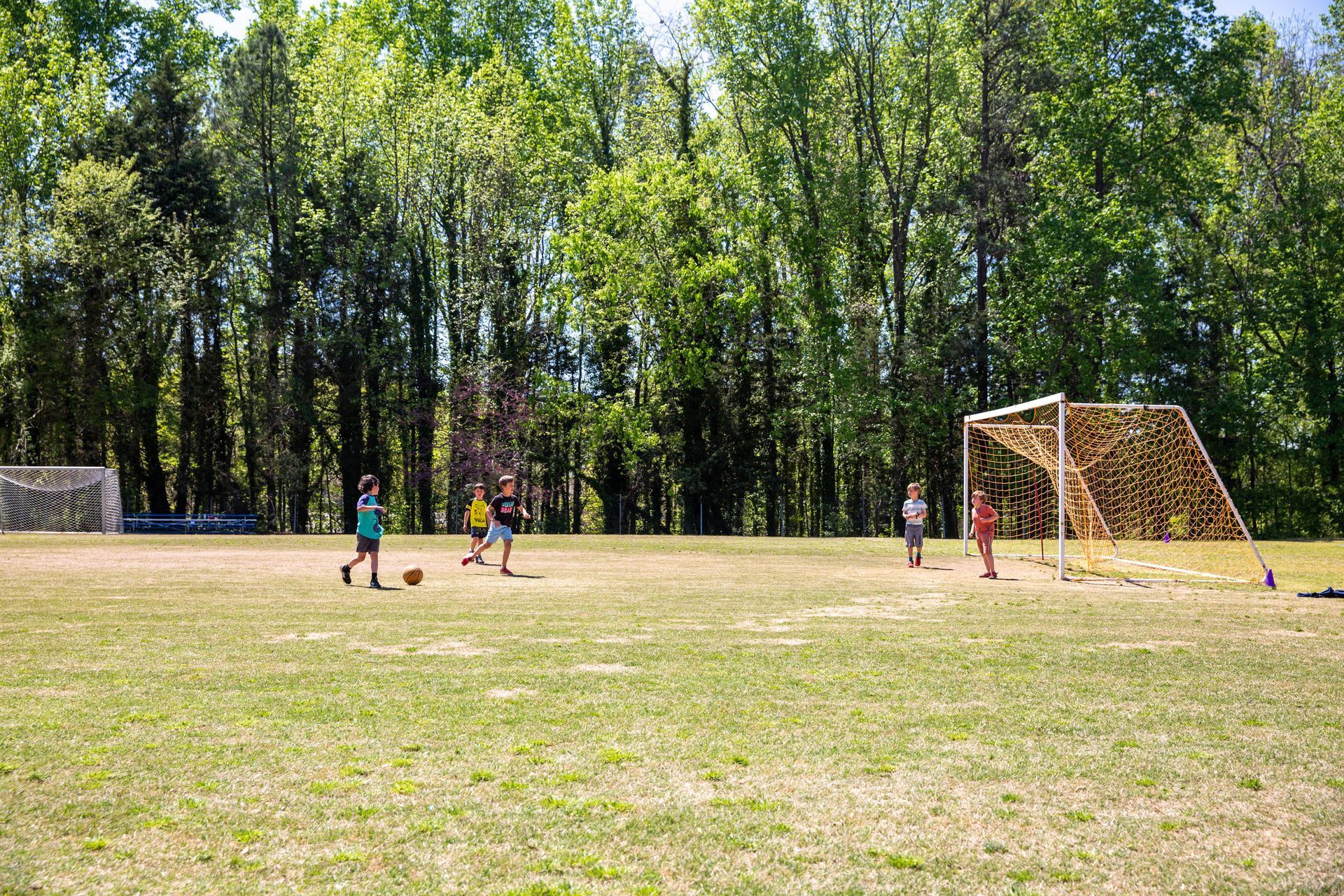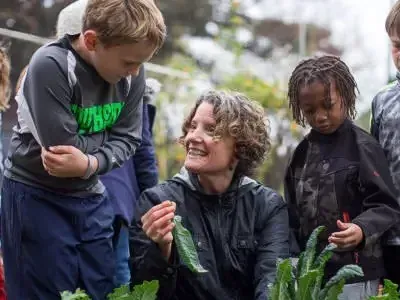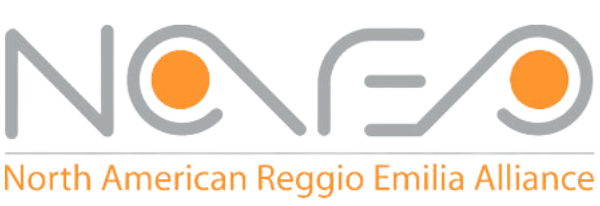Our Campus
Our historic campus sits on the former Larus estate in Richmond, VA.
The rich history and natural beauty of our campus and the adjoining 106-acre Larus Park serve as a unique habitat for learning and discovery. Learn more about the history of our campus here.
Honor Hall
Honor Hall is the newest building on campus. Named for beloved founding Head of School, Irene Honor Carney, Honor Hall began as a dream in 2016, broke ground in 2020, and opened in January 2023.
This long-awaited building boasts sixteen learning spaces, including a dedicated science lab and a Studio (Atelier). Comprised of 16,000 square feet and designed with Reggio-inspired learning in mind, this purpose-built facility serves grades K-8.
Honor Hall was a pivotal part of Sabot’s strategic plan, as it creates a sense of community and allows for cross-program activity between grade levels due to the close proximity of the classrooms.
Main House & Gillette Garden
Our Main House is part of the original Larus estate, originally a sprawling estate of a tobacco baron, known affectionately as “Squire”. The Main House, built in 1925 after a fire destroyed the original structure, was designed in a “fanciful mixture of English Tudor, Elizabethan, and Jacobean styles”. The renowned Charles Gillette designed Stony Point’s gardens.
Students who learn in the Main House enjoy the beauty of original hardwood floors, abundant natural light, unique materials, and intricate design. Currently, there are three preschool classrooms in the Main House. The Gillette Garden and stone terrace, situated behind the house, provide our school with a backdrop for students’ play, garden concerts, and a memorable graduation. The garden is also available to the larger community to rent for weddings and other private events.
Learn more about our
facility rental
Founders Hall
Founders Hall was constructed in 2012. Its top floor is a large multi-purpose space that is used for school-wide performances, gatherings, workshops, and celebrations.
It is also home to the first classrooms designed specifically for our educational approach, which sit on the bottom floor with direct access to the outdoors.
Larus Park
Not to brag, but we have the coolest playground in Richmond.
Adjacent to the school is the 106-acre Larus Park – home to trails, streams, and a variety of flora and fauna. This park is touted as one of Richmond’s “best kept secrets” and is a treasure trove of inspiration for scientific inquiry and inspiration. Our students access the park weekly and many consider it a favorite destination for family adventures.
Classes spend time in the forest on a regular basis: exploring, making forts, playing pretend, and learning from nature. We are outside rain or shine and in all seasons - rain boots required. We believe that time spent in nature is crucial to child-development and fosters an innate sense of wonder and discovery, in addition to the socio-emotional learning that emerges during play: Team-work, resilience, problem-solving, just to name a few.
Learn more about
Larus Park
Preschool Cottages
Two
Historic Cottages at the back of our campus provide classroom space for preschool children. These cottages feature outdoor play areas, wrap around porches, and easy access to the outdoors. Additional hardscaping will be completed in 2024.
Athletic Resources
Our athletics resources include a regulation-size soccer field that serves as the home field for our soccer league, two versatile tennis/multi-sport courts, basketball hoops, four-square courts, and a gaga pit.
Additionally, our two age-appropriate playgrounds provide a variety of engaging equipment and play structures, such as climbing frames, slides, and swings, catering to the diverse needs and interests of our students. These spaces are designed to promote physical activity, creativity, and social interaction, ensuring that all children have the opportunity to play, explore, and thrive.
Community Garden
The Grow Community Garden is a home for investigations as well as weekly after-school enrichment and a summer program in which children learn about gardening and develop an initial understanding of food economy.
We have grown 55 varieties of different herbs, flowers, vegetables, and fruit in the Community Garden just this year!
The child is an active learner, seeking the meaning of the world from birth; a co-creator of knowledge, identity, culture and values; a citizen, the subject of rights, not needs; and born with 'a hundred languages'.
adapted from Loris Malaguzzi and the UNESCO Policy Brief on early childhood


